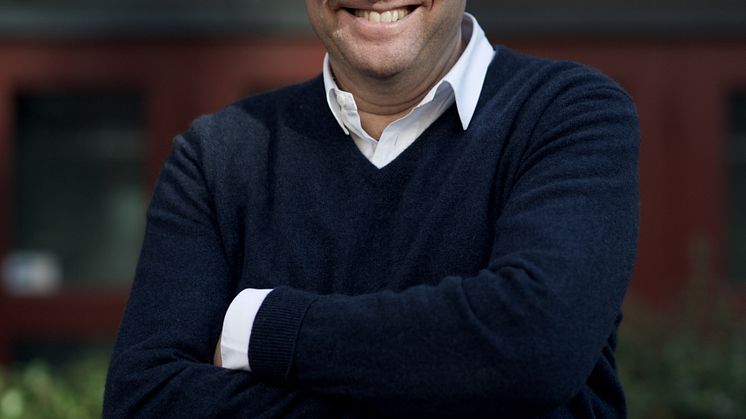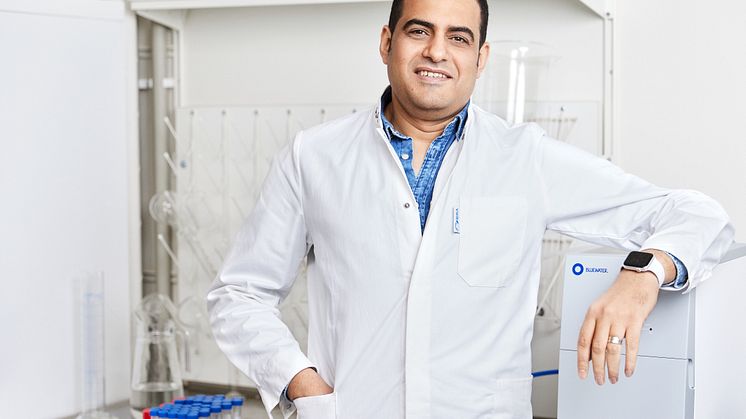
News -
New study reveals eating just one freshwater fish a year can equal a month of drinking water laced with cancer causing 'forever chemicals' such as PFAS
Stockholm, Sweden, January 19, 2023 –– Alarmingly high levels of toxic ‘forever chemicals’ such as PFAS have been found in freshwater fish such as bass and salmon by a new studyin the United States, sparking a call from Swedish beverage company Bluewater for lawmakers around the world to increase efforts to crack down on use of ‘forever chemicals’ that have been found in drinking water.
“Like microplastic, toxic chemicals such as PFAS are pervasive and can be found in food we eat and water we drink, and, according to new research, have reached levels in rainwater in most locations around the planet that exceed drinking water advisory levels,” said Mr. Bengt Rittri, (photo below) the Swedish environmental entrepreneur who in 2013 founded the Bluewater beverage company to deliver healthier water to everyone. He noted that the researchers behind the discovery at Stockholm University believed there was now no safe space on Earth to avoid PFAS.

Calling on the world’s lawmakers to intensify cracking down on ‘forever chemicals’ use, Mr. Rittri said: “We can’t undo the damage that’s already been done, but we can do more to avoid causing more damage by working to raise awareness among the public about the issues, encouraging more research into solutions, and lobbying lawmakers to implement the changes needed to protect people and the planet.”
The new freshwater fish study, by scientists at Washington=based Environmental Working Group (EWG), a nonprofit, non-partisan organization empowering people to live healthier lives, used testing data from the Environmental Protection Agency and Food and Drug Administration. They found the median amounts of PFAS in freshwater fish were an astounding 280 times greater than forever chemicals detected in some commercially caught and sold fish.
“These test results are breathtaking,” said Scott Faber, EWG’s senior vice president for government affairs. “Eating one bass is equivalent to drinking PFOS-tainted water for a month.”
In the USA, the EWG says PFAS have been found at more than 2,800 sites in 50 states and contaminate the drinking water of more than 200 million Americans.
Studies have revealed more than 99% of Americans have PFOS and PFOA (two well known forms of PFAS) in their blood, and the numbers are thought to be similar all over the world. Other research has shown links between PFAS exposure and a wide range of human health concerns, from growth, learning, and behavioural problems, to cancer, immune system disorders, fertility issues and obesity.
The problem of forever chemicals in the environment is global. In England, the Environment Agency says PFAS is “ubiquitous in the environment”. Yet the UK government, like many others elsewhere, does not require testing drinking water for PFAS. According to the pfasfree.org.uk website, run by Fidra, an environmental charity working to reduce chemical and plastic pollution in seas and the wider environment, drinking water is a main source of exposure to PFAS.4
The European Union is going further than many regulatory bodies around the world to address the issue. The EU Commission has outlined a comprehensive set of actions to address both the use of PFAS and the pollution they cause..
To prevent further contamination, the Commission wants in particular to see the use of PFAS phased out in the EU, unless proven essential for society.
Tasha Stoiber, Ph.D., an EWG senior scientist and study co-author, said:. “PFAS do not disappear when products are thrown or flushed away. Our research shows that the most common disposal methods may end up leading to further environmental pollution.”
Laboratory testing has demonstrated that the top-of-the-line Bluewater Pro purifier successfully removes up to 99.99% of health-threatening PFAS chemicals such as PFOA, PFOS, PFBA, and PFBS. PFAS chemicals have been found in the tap water of communities around the world. The research was carried out in a laboratory at the prestigious Royal Institute of Technology in Stockholm (KTH) and the results were verified by the independent bio-analytical testing group Eurofins.
“The ability of our water purifiers to remove toxic PFAS is excellent news for people worried about forever chemicals in tap water,” said Bengt Rittri, founder and CEO of Bluewater.
For more information please contact Dave Noble, Bluewater PR and Communications Director, at David.noble@bluewatergroup.com or call on +44 7785 302 69d.
About Bluewater
Bluewater has set its sights on being the world’s most planet-friendly beverage company by innovating disruptive water purification technologies for home, work and play. Providing health-enhancing hydration solutions which are generated and distributed at point of use, combined with reusable stainless steel and glass bottles, allows Bluewater to break the stranglehold of single-use plastic bottles and their unnecessary, polluting transportation. Bluewater products are available to consumers, hotel and catering operations, and event and venue organizations in Europe, the USA, the UK, China, South-East Asia, the Middle East, and Africa. Bluewater has been honored with two Fast Company World Changing Ideas Awards, a K&B Kitchen Innovation of the Year Award and recognized for its sustainability efforts by numerous other publications. In 2022, Bluewater acquired the U.S. Flowater water company, based in Denver, Colorado, which sells advanced water dispensers throughout North America that help a wide cross section of businesses efficiently avoid the use of single-use plastic bottles



